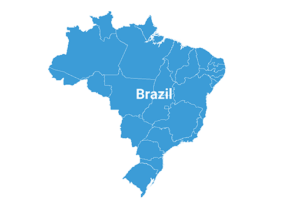 Brazil provides free, universal access to medical care to anyone legally living in the country. Known as Sistema Único de Saúde (SUS), the Unified Health System was created in 1989 and is the largest non-discriminatory government-run public health care system.
Brazil provides free, universal access to medical care to anyone legally living in the country. Known as Sistema Único de Saúde (SUS), the Unified Health System was created in 1989 and is the largest non-discriminatory government-run public health care system.
The SUS is a decentralized system managed by Brazilian states and municipalities. A National Health Identification card is required to access health care so that medical records can be coordinated between public and private services. More than 80% of the Brazilian population depend on SUS for medical treatment. Despite this success, there remain problems with unequal access to SUS depending on where people live and their socio-economic status.
Health is a right of all and an obligation of the State, guaranteed by socio-economic policies which seek to the reduction of the risk of disease and of other grievances and to the universal and equal access to the actions and services in its promotion, protection and recuperation.
– Constitution of Brazil, 1988

